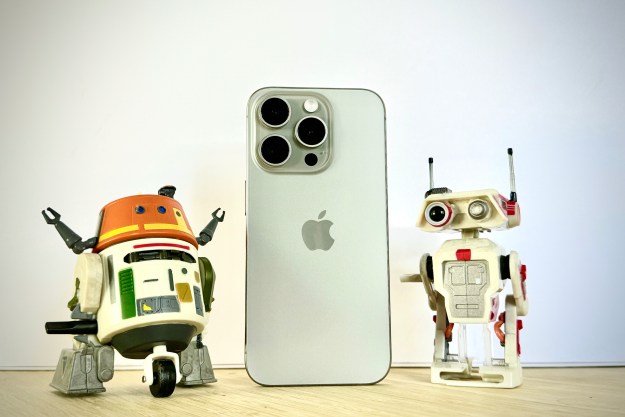
But travel apps have traditionally just duplicated the desktop experience. You search for a flight, book it, and that is the end of the story. Despite the growth in mobile, desktop bookings are still much higher than mobile, ADI said. Which is why Zacharia and others in the industry believe mobile apps must evolve into services that offer some sort of personalization – for before, during, and after a trip.
He may be right because travel apps are doing just that. Leveraging real-time big data and monitoring how users behave, these apps can provide information and services that are unique to each user (or as close to it as possible). Many of these app features are at their infancy, but they provide a look at how mobile travel apps are becoming more like virtual travel agents, rather that basic search tools.
Booking.com adds tailored Booking Experiences
Leveraging artificial intelligence and user data, Booking.com’s Booking Experiences is a new feature that provides in-destination recommendations tailored for a particular user.
Booking Experiences, which is accessible in the Booking.com iOS and
“The technology behind Booking Experiences will continuously learn from your travel preferences, as well as other travellers like you, to eventually present you with increasingly curated options that are just right for you,” said David Vismans, chief product officer at Booking.com, in a statement.
Booking Experiences also introduces a new way to pay for access to select venues and attractions in select cities, by way of QR code. Once you’re at the participating location, getting inside is as easy scanning the QR code. Fees are charged to a credit card you have on file.
Avis Now goes beyond car renting
When renting a car, you don’t have control over what cars are available at the time of arrival. Avis’ app has a feature called Avis Now, which gives you greater control of the rental process from the start, middle, and end.
With the app, you can initiate a rental without checking in at the counter, and a car will be assigned to you. However, you can switch vehicles simply by swiping and choosing another preferred vehicle. The app lets you view what’s available in the fleet, in real-time, and you can upgrade to an SUV if you’re not jazzed about the compact.
During the rental period, the app can lock or unlock doors. If you need more time, you can also extend the rental. Avis can send important messages, or provide help when requested. These features aren’t exactly groundbreaking, but they allow Avis to stay in-communication with renters at all times.
To use the Avis Now features, renters have to sign up with the free Avis Preferred program. The app is available on both iOS and
Travel industries embrace Facebook chatbots
Through AI chatbots, Facebook Messenger is increasingly becoming a platform for what Chris Messina, Uber’s former Developer Experience Lead, coined as “conversational commerce.” Whether it’s a human or bot, Messina said more and more service-oriented companies will utilize
Indeed, the travel sector is experimenting with conversational commerce. Dutch airliner KLM partnered with Facebook to add Messenger as a platform for a passenger’s entire journey. Aside from a boarding pass, KLM can provide real-time information as well as immediate customer assistance. Companies like Kayak, which let you search for flights, hotels, and rental cars, as well as Sky Scanner, are also available on the Messenger platform.

Hipmunk, the travel-planning search company, unveiled its Hello Hipmunk planning assistant in June 2016. Using a chatbot (also available via Slack and email), you can search for flights and hotels using natural conversation – as you might with a real-life travel agent. It can even tell you the best times to travel. According to the company, it can cut down the number of searches (which averages around 20) users make to find the best pricing. Because you’re dealing with AI you can’t be too complex in your requests, and it’s only available to English-speaking users. But as it continues to learn, Hello Hipmunk should only get more advanced.
AeroMexico is one of the latest companies to jump on the Messenger bots bandwagon, and more are on the way along with group chatbots.
Hopper has a vacation notifier
By analyzing big data to search for travel trends, Hopper tries to predict when airfares might be at the lowest. For travelers who need reassurance that they’re getting the best deal, Hopper provides that peace of mind.
Despite the growth in mobile, desktop bookings are still higher than mobile.
With more than six million people now using Hopper, it has a lot of data to mine. Based on user behavior, it found that more than half of its users have flexibility when it comes to dates or destinations. It also discovered that many folks are interested in deals from their home airport for spontaneous travel.
To meet their needs, Hopper added a notification feed in its app, which includes “updates about your current trips watches. It will also provide tips and recommendations that are tailored to your specific watches or searches. [It] will let you know if you could snag a better deal by adjusting your dates or it will make a recommendation if a similar destination is on sale.”
The feed also sends notifications about deals to favorite destinations, breaking fare sales, and other deals. While airfare deal alerts aren’t new, this is all being done in real-time – Hopper
Marriott goes Mobile
For Marriott, mobile technology has become the biggest revolution in its business since the mattress. According to George Corbin, Marriott’s senior vice president who oversees the Marriott Digital business, Marriott.com earned approximately $12 billion in gross revenue in 2015 – the first time it surpassed a billion dollars – with the mobile app accounting for a big part of that. The app lets guests check-in and -out remotely, and also make housekeeping requests, among other features.
Nearly all hotel apps let guests do the same thing, but Corbin told Digital Trends that the company is focusing on how its app can deliver more personalization to drive greater booking conversions.
“There’s been talk for ages about personalization,” Corbin said. “There’s been the promise of personalization, and there’s been the reality of personalization. The promise has finally met reality.”

Corbin added that historically, after a booking, a customer was left to fend for him or herself, and that accounts for a lot of the stress travelers experience on a trip. Analyzing what Corbin called travel “pain points,” Marriott found it could help relieve travelers’ stress during a journey, from beginning to end.
And Marriott is able to do this thanks to its app. “Mobile has changed the way we can reach the customer at all these points,” Corbin said, adding that this type of mobile personalization is good for business. Using the Service Request function, “People who had an issue and got it resolved upon first contact – their satisfaction with the stay was higher than people with no problem at all.”
When it comes to new technologies, Marriott constantly is on the lookout for new trends, from virtual reality to social networking, and Netflix streaming. Ultimately, Corbin said, it’s about proofs of concepts that can operate at scale. For Marriott, the mobile app could be its biggest proof of concept to date.



